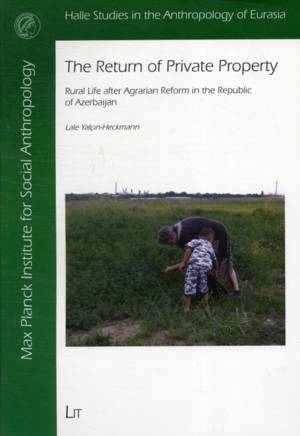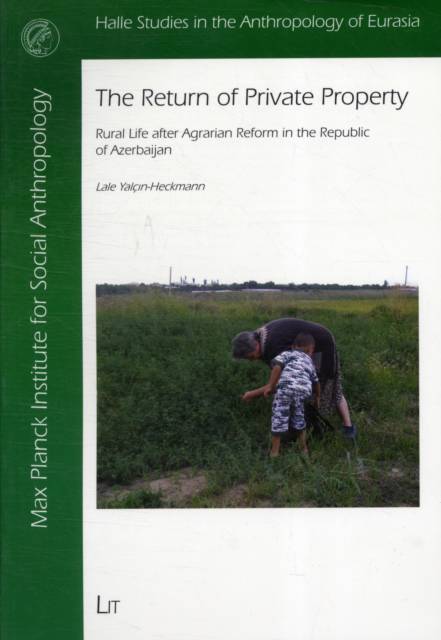
Door een staking bij bpost kan je online bestelling op dit moment iets langer onderweg zijn dan voorzien. Dringend iets nodig? Onze winkels ontvangen jou met open armen!
- Afhalen na 1 uur in een winkel met voorraad
- Gratis thuislevering in België vanaf € 30
- Ruim aanbod met 7 miljoen producten
Door een staking bij bpost kan je online bestelling op dit moment iets langer onderweg zijn dan voorzien. Dringend iets nodig? Onze winkels ontvangen jou met open armen!
- Afhalen na 1 uur in een winkel met voorraad
- Gratis thuislevering in België vanaf € 30
- Ruim aanbod met 7 miljoen producten
Zoeken
The Return of Private Property
Rural Life after Agrarian Reform in the Republic of Azerbaijan
Lale Yalcin-Heckmann
€ 29,45
+ 58 punten
Omschrijving
What makes private property valuable, desirable or workable? This book focuses on social and economic dimensions of private property after the agrarian reforms of 1996 in Azerbaijan. It looks at the kinds of land and cultivation strategies emerging in the decades after the fall of the Soviet Union and asks why rural households were often unwilling to cultivate the privatized land shares they received for free, despite the threat and existence of rural poverty. Consideration is given both to households which were engaging in cultivation and those which were not. This includes internally displaced persons who were formally excluded from the privatization process but were nevertheless successful and eager cultivators. How and why were they keen on using land? How far does private property thrive on its own, without the support of lucrative markets or without the implementation of state sponsored economic policies? Through the lens and insights provided by economic anthropology, this study chronicles the historical legacy of authoritarian state structures, as well as the contemporary micro- and macro-economic struggles that mark a politics of property after socialism.
Specificaties
Betrokkenen
- Auteur(s):
- Uitgeverij:
Inhoud
- Aantal bladzijden:
- 240
- Taal:
- Engels
- Reeks:
- Reeksnummer:
- nr. 24
Eigenschappen
- Productcode (EAN):
- 9783643106292
- Verschijningsdatum:
- 3/05/2011
- Uitvoering:
- Paperback
- Afmetingen:
- 162 mm x 235 mm
- Gewicht:
- 438 g

Alleen bij Standaard Boekhandel
+ 58 punten op je klantenkaart van Standaard Boekhandel
Beoordelingen
We publiceren alleen reviews die voldoen aan de voorwaarden voor reviews. Bekijk onze voorwaarden voor reviews.











